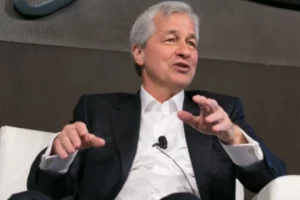Amid the Hindenburg report accusing Gautam Adani-driven Adani Group of gross manipulation in stock markets, two questions have come in focus: first, will the Adani Group lead to a collapse with its high level of debt estimated at Rs 3.39 trillion or $41.1 billion and second, will the dramatic fall in the share prices of its companies lead to a market rout?
The answer for both is in the negative.
Though the jury is out, a quick analysis will tell you that many have missed an important point—Adani’s businesses are spread across sectors– from mines, ports, airports, power plants, media, renewable energy among others. Most of the Adani Group investments comprise physical assets and infrastructure projects, which dilutes lenders’ risks to a large extent.
A Nikkei Asia analysis showed that Adani Group’s total debts are equivalent to at least 1 per cent of the Indian economy but a large chunk of this can be “easily repaid” if Adani decides to sell off some assets.
“As the Adani Empire comes under siege following accusations of fraud from US short seller Hindenburg, its cash generating infrastructure assets are providing comfort to some bondholders,” the Financial Times noted.
The Adani Group’s huge investments into the infrastructure sector have come handy for the Narendra Modi government. Infrastructure projects with long gestation periods have been primarily financed by the government in India. Contrast this with China. Infrastructure financing in China has been taken up by government-backed companies.
Wall Street Journal noted that “private infrastructure funding has long been an Achilles’ heel for India.” A market analyst said with Adani’s funds flowing into the sector, a part of this problem has been solved.
“Until you have private sector investments in infrastructure, it is not possible for the government alone to keep financing projects. It will leave a hole in the fisc. Now at this point, the Adani group came forth in investing in the critical infra sector,” he explained.
Bloomberg in fact in a report said “If Adani didn’t exist, the Indian government would have had to invent him: The development model we have now chosen requires risk-taking ‘national champions’ such as the Adani Group.”
It further noted that the “public sector is too inefficient to build what India needs; the rest of the private sector is too concerned about political risk.”
According to India Brand Equity Foundation (IBEF), for India to touch the $5 trillion economy, infrastructure development will be vital. “Hundreds of new cities need to be developed over the next decade,” it said.
This needs huge investments and it is key to ensure that the private sector financing flows in.
Soon after the Hindenburg report, many pundits opined that this could be the end of the road for Adani.
Adani Enterprises, however registered a consolidated net profit of Rs 820 crore for the October-December 2022 quarter, against a loss of Rs 11.63 crore a year ago. The revenue from its operations surged 42 per cent to Rs 26,612.2 crore up from Rs 18,757.9 crore last year. Notably, Adani Enterprises withdrew its Rs 20,000 crore follow on public offer following the Hindenburg report in January.
Adani has been in the news in the last few months. Recently, he took over the strategically located Haifa Port in Israel for $1.15 billion.
The Adani Ports and Special Economic Zone Limited (APSEZ Ltd.) is now India’s largest private port operator providing end-to-end logistics support.
It owns Mundra Port, Hazira Port, Dahej Port in Gujarat, Dhamra Port in Odisha, Mormugao in Goa among others. Recently, Adani Group had
Under the Adani umbrella, it has seven traded companies– Adani Enterprises- its flagship brand, Adani Green Energy, Adani Transmission, Adani Total Gas, Adani Power, Adani Wilmar besides APSEZ Ltd.
“In the long run, enticing more long term investment capital directly into India’s infrastructure funding pool will be critical, whatever happens at Adani Group. That could involve politically perilous steps like taking on entrenched local interests to cut red tape and beefing up investor protections—but the alternative may be underwhelming infrastructure investment at a time when India needs to shine,” WSJ noted.
The analyst quoted earlier added that India would need more Adanis to come forth in putting money in the infrastructure sector.
Also read: Adani Enterprises posts Rs 820 crore net profit in Oct-Dec quarter
Is Adani being targeted because he is part of the New India story?




















